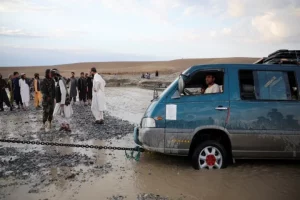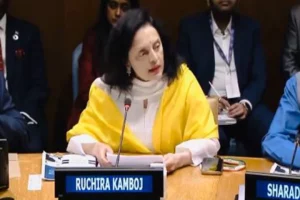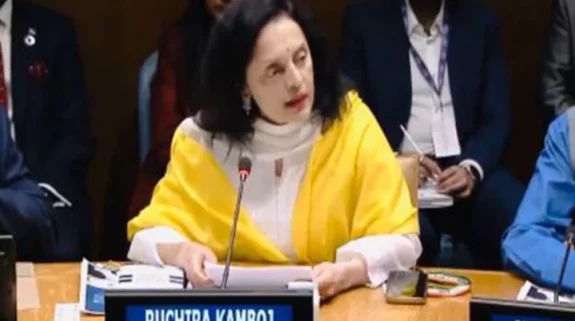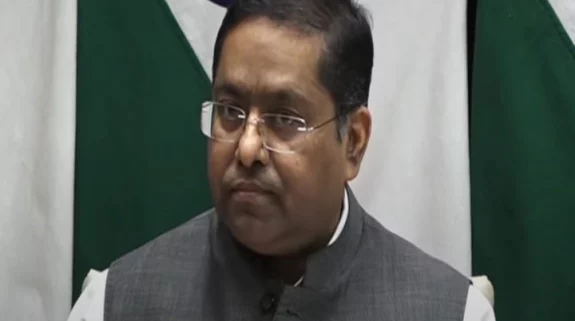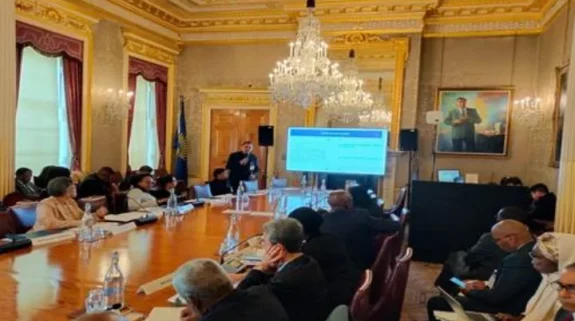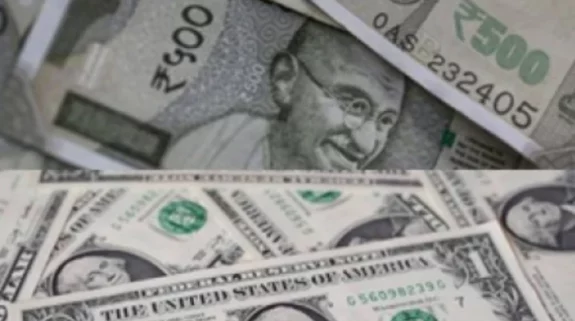The civil-war like situation and worsening Covid-19 pandemic in Pakistan have forced China to hold back on projects under the ambitious $62 billion China-Pakistan Economic Corridor (CPEC). The construction of package-I of the Mainline-1 project, which includes upgrading of the 1,872 km railway track from Peshawar to Karachi worth over $6 billion has also been put on hold. The Chinese move will further dent its already battered economy, amid the fast spreading of the coronavirus pandemic.
According to a recent report in <em>Asia Times</em>, Pakistan Prime Minister Imran Khan's government, which is criticized for being under military control, is also facing flak in his country for not prioritizing and expediting big-ticket Chinese infrastructure investments.
In recent times, Khan has repeatedly highlighted the need to complete the $60-billion CPEC as it would push socio-economic development. In 2019, Pakistan's GDP growth crashed to below one per cent. This year, the growth is expected to contract in negative.
After coming to power in 2018, Imran Khan had put on hold several CPEC projects suspecting corruption by the Nawaz Sharif government. However, two years later, several of his Cabinet members were named in big corruption scandals involving the country’s power sector. About one-third of Pakistan’s power companies are involved in Chinese projects under the CPEC.
<strong>Read more: <a href="https://indianarrative.com/world/cpec-pushes-pakistan-into-the-dragons-greedy-mouth-2242.html">CPEC pushes Pakistan into the dragon’s greedy mouth</a></strong>
<strong>Read more: <a href="https://indianarrative.com/world/imran-khans-naya-pakistan-rocked-by-pashtun-sindh-baloch-agitations-16209.html">Imran Khan’s Naya Pakistan rocked by Pashtun, Sindh, Baloch agitations</a></strong>
In April this year. the Securities and Exchange Commission of Pakistan (SECP) submitted an inquiry report to PM Khan which unearthed alleged irregularities worth over $1.8 billion in subsidies given to 16 independent power producers (IPPs) including those belonging to Khan’s advisors Razak Dawood and Nadeem Baber, <em>Asia Times</em> reported. The SCEP had also investigated profits earned by the Chinese power companies. The report revealed that Huang Shandong Ruyi Pakistan Ltd (HSR) and Port Qasim Electric Power Co Ltd (PQEPCL) were together overpaid by Rs 483.6 billion ($3 billion).
The Pakistan Democratic Movement (PDM), an alliance of 11 opposition parties, has demanded the Imran Khan-led government to speed up the Chinese-funded projects, especially the motorway and railway modernisation plans that have had almost no progress in the last five months. The PDM has also demanded the removal of CPEC Authority’s Chairman, retired Lieutenant General Asim Saleem
Bajwa, until he comes clear of his personal and his family business assets in the US.
Recently, a local media had exposed Bajwa’s several offshore businesses, including more than 100 companies and franchises in the US, UAE and Canada in which his family is involved. In 2019, the Prime Minister had promulgated an ordinance to establish a CPEC Authority (CPECA) ahead of his visit to China and appointed a former lieutenant general as its chairperson. Earlier, the Planning and Development Ministry used to oversee CPEC projects.
The report revealed that that CPECA was forced upon the government by China, which wanted the army to be directly involved in the CPEC portfolio as Beijing was reportedly irked with Khan’s slow movement. It further disclosed that recent revelations of Bajwa’s offshore assets had shocked China as it had wished to work with the Pakistan military to prevent private corruption.
<strong>Read more: <a href="https://indianarrative.com/world/myanmar-wriggling-out-of-chinese-lair-reduces-cmec-commitment-11348.html">Myanmar wriggling out of Chinese lair, reduces CMEC commitment</a></strong>
<strong>Read more: <a href="https://indianarrative.com/world/balochistan-sindhi-nationalists-unite-to-oppose-pak-china-and-cpec-8715.html">Balochistan, Sindhi nationalists unite to oppose Pak, China and CPEC</a></strong>
Following the revelations, Chinese President Xi Jinping’s scheduled visit to Pakistan in September was postponed citing Covid-19 as the official reason. As in recent weeks, Chinese workers and engineers working in Balochistan and Sindh have been targeted and killed, the cost of providing around-the-clock
security to Chinese nationals is raising the price of the projects at a time Pakistan’s economy is faltering badly.
Meanwhile, Pakistan had requested a one per cent interest rate on the Chinese loan for the ML-1 rail project. China is, however, reluctant to heed to the request and instead used “delaying tactics” to pressurize Islamabad to continue accepting the high rate of interest. As per the agreement, the project is financed jointly by China and Pakistan where Islamabad will invest 10 per cent of the project cost as equity and Beijing will extend 90 per cent in the form of a loan under CPEC.
Given the strategic importance of ML-1 project, both sides jointly decided that financing arrangement would be made proactively and work on ground could be started early. But, it did not move beyond a framework agreement signed in 2016 until June 2020. Only this year has the government begun to prepare to invite bids for tenders for the project. The Pakistani government had previously aimed
to upgrade the line by a 2021 deadline, which has now been pushed to 2024.
Meanwhile, China has pulled back a little and isn’t keen on the interest rate on the loan demanded by Pakistan. China is using delaying tactics as it doesn’t want to end up with a bad deal. Instead of turning down the request, China delays by offering an investment but putting up an obstacle to the final agreement to delay things.
https://indianarrative.com/world/sri-lanka-battles-continuous-narcotics-flow-from-pakistan-20385.html.







